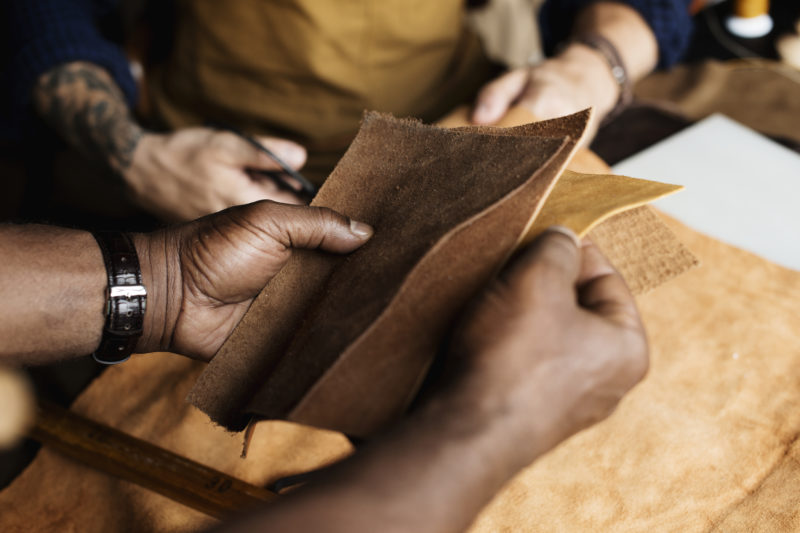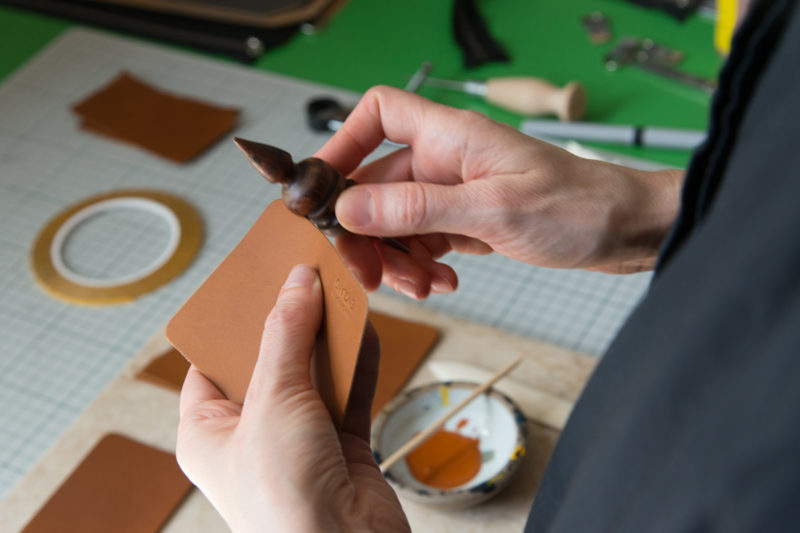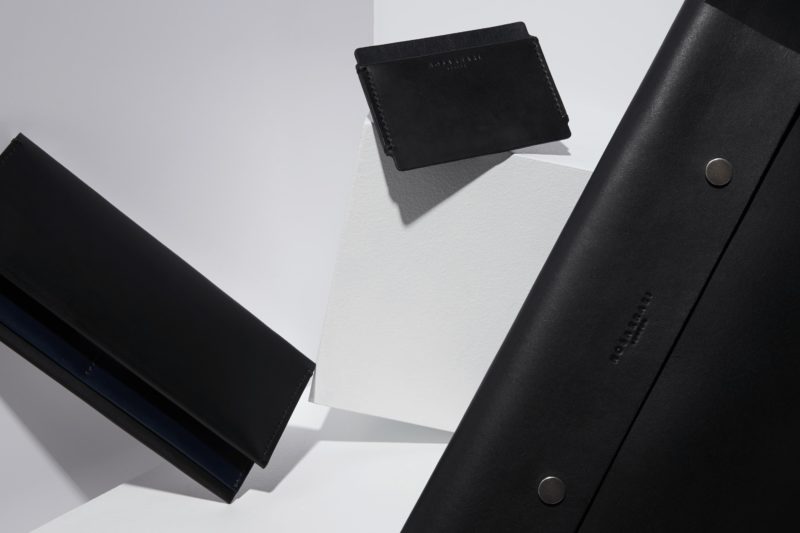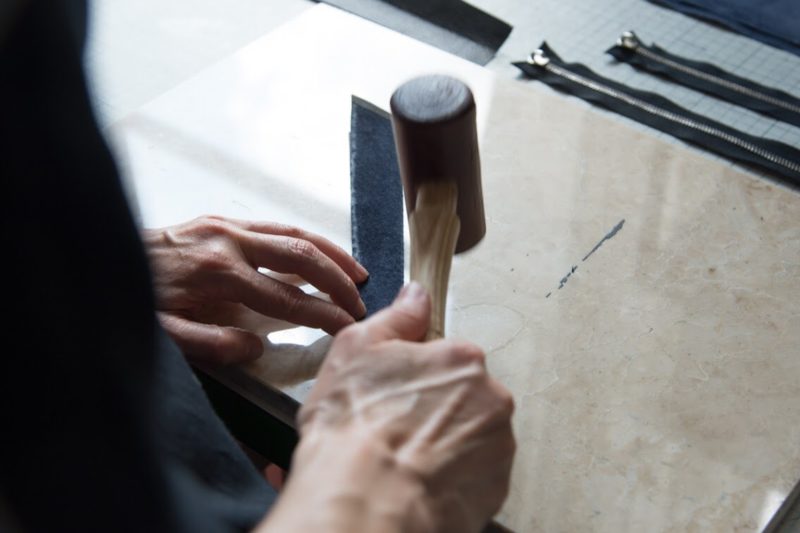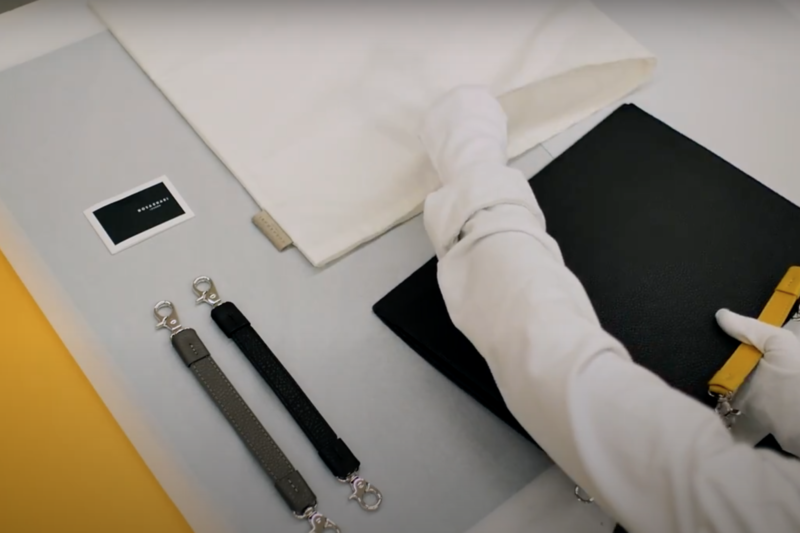Sustainable Leather: A Step Towards Better Future
Traditional leather goods are widely sought after by leather enthusiasts due to their durability and immaculate finish. In today’s times, the demand for handmade leather products has been soaring and the global leather market is worth billions. To fuel this demand, manufacturers are adopting leather tanning processes using chemicals that are detrimental to the environment.
Having identified these negative impacts, a multitude of leather manufacturers have taken up more sustainable practices. They use leather-like materials popularly known as ‘vegan leather’ that’s made not of the animal hide but with various materials including plants, mushrooms and sometimes even fish skin. Other manufacturers have implemented more environment-friendly practices in leather production to reduce their carbon footprint.
Given the detrimental impact that leather manufacturing and tanning has on the environment, numerous leather manufacturers based in the UK have revolutionised the leather industry with their sustainable practices. And these changes have been implemented without any impact on the quality of the produced leather goods. These sustainable leather goods exude the same elegance and suave as their predecessors.
This article will go over 8 leather companies based in the UK that have popularised ‘eco-leather trends’ in 2021. These companies have laid the foundation for leathercrafting processes of the future as our world shifts to sustainable practices.
8 Sustainable Leather Companies for 2021
One notion that people have regarding sustainable leather is the fact that it’s in some way inferior to animal hide leather. But that could not be further from the truth. Sustainable leather is a by-product of agricultural activities and is made by combining natural fibres and polymers. This type of leather not just emulates the quality and longevity of animal hide leather but, in some cases, supersedes it.
Econyl is a UK based company that has developed a ‘regenerative nylon’ made from waste. This sustainable fabric is infinitely recyclable, and using this, Econyl manufactured a sustainable leather tote bag named ‘Portobello Tote’. 100 % sustainable, the Econyl goes the extra yard to reduce their carbon footprint. From start to finish, their leathercrafting processes are based entirely in their factories in Somerset.
Orange Fiber was the first leather manufacturer in the UK to patent a sustainable fabric from citrus juice by-products. This material was exclusively created to mirror the brand’s philosophy of being committed to environmental preservation while catering fashion industry
with premium goods.
Made from potato waste, Parblex developed a bioplastic that it currently uses for making accessories like buttons and fastenings on fabrics. The sustainable leather products made by this fibre are magisterial in their outlook as the textured finish comes in snow, tortoiseshell, and smoke colours.
This leather manufacturer sustainably produces a material called Mylo that’s made via controlled composting of mycelium. Unlike animal hide leather, this sustainable leather is produced within a matter of days of composting. Thus, the mycelium-based leather fabric is used to produce premium leather footwear, handbags, wallets, phone cases, and other elegant products.
Manufactured using a symbiotic growth of bacteria and yeast (SCOBY), SCOBY leather is one of the most flexible and adaptable bio-material out there. What makes this fabric so unique is that it grows entirely by bacteria and yeast culture and yet is as durable as animal hide leather. This leather can be versatile in a wide range of items such as footwear, belts, and even premium wallets.
Agro Loop BioFibre is a sustainable leather fabric created by Circular Systems, which is made from crop residue. The waste from the farms of sugarcane, banana, pineapple, flax and hemp are collected and left to compost. Thus, the fabric is environment-friendly and aesthetically just as magisterial as that of animal hide leather.
A textile made from waste pineapple leaf fibre, Pinatex, can be used as an alternative to leather. Its aesthetics and durability make it a perfect substitute for animal hide leather across the fashion industry. However, the only drawback of this fabric is that it’s not 100% biodegradable. The substrate material of Pinatex is made from 80% pineapple leaf fibre and 20% Poly Lactic Acid.
Created using casein from organic milk, QMilch is a sustainable leather fabric that’s exceptionally resource-efficient in terms of its production. The manufacture of this organic fabric requires only half a gallon of water to make two pounds of QMilch. A similar quantity of cotton requires more than 2600 gallons of water.
Its silk-like texture makes it extremely popular in the fashion industry, especially in the manufacture of jackets and other apparel.
Conclusion
Choosing sustainable leather is an excellent way to way care for the environment while indulging in fashionable trends. Turning waste products into sustainable leather fabrics that ooze elegance is something that couldn’t have been thought and yet today, it has become commonplace in the leather industry of the UK.
We, at CreateLab, also offer our leather production services in the UK for your vegan leather goods. With years of expertise in the leather industry, we are pioneers in crafting innovative premium designs out of vegan leather. Furthermore, we help leather businesses produce luxurious designs and leather products for their business. Our years of experience in the leather industry help us find the balance between functionality and style.
Given the detrimental effects of today’s manufacturing practices on the environment, sustainable leather is a must for the fashion industry going forward.
At CreateLab, we’re proud to offer you our services while using vegan leather. Please get in touch with us and find out more about our services.
